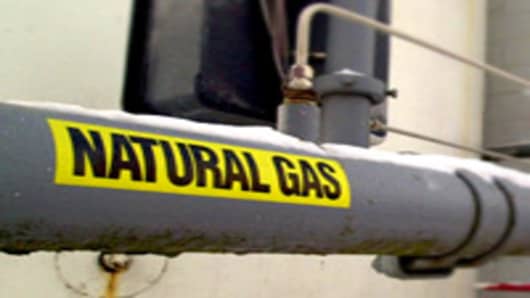Natural gas futures are the strongest part of the energy complex again today. Despite oil prices hitting new highs on a daily basis, gains in natural gas futures are nearly double crude so far this year.
Today's price surge, which has taken natural gas futures to their highest level in 27 months, may have much as much to do with investors feeling particularly bullish after reading the front page of Wall Street Journal this morning as a break above key technical levels.
The Journal elaborated on a troubling issue that we have been reporting all week long: growing concern among traders and analysts about tightness in the market due to lower liquefied natural gas imports to the U.S. and relatively low natural gas storage levels.
U.S. LNG imports are already at a five-year low. Injection season has begun and so the market is adding to natural gas supplies, but will it be enough to carry us through a harsh winter?
Trader Randy Rothenberg of Battalion Capital Management tells me the market would need to add 77 billion cubic feet of natural gas per week in order to get to last year's winter storage levels. Yet the 5-year-average has only been 68 billion cubic feet. Rothenberg says: "If we're not getting enough natural gas from imports or other sources, we'll have trouble getting up to levels necessary for winter demand."
Yesterday legendary energy trader Boone Pickens told an audience at Georgetown University that he sees natural gas prices climbing to $12 to $14 this winter. The winter strip for natural gas futures, from November 2008 to March 2009, is already over $11. Some floor traders that I talk to think futures could hit that mark much more quickly.
Says one trader: "We could have wild moves in July to September. We could hit there this summer."
Forecasts from Colorado State University and several private firms are calling for very stormy Atlantic hurricane season. A major storm that disrupts platforms in the Gulf of Mexico could leave the natural gas market even more vulnerable to a severe upside move.
Questions? Comments? energysource@cnbc.com



